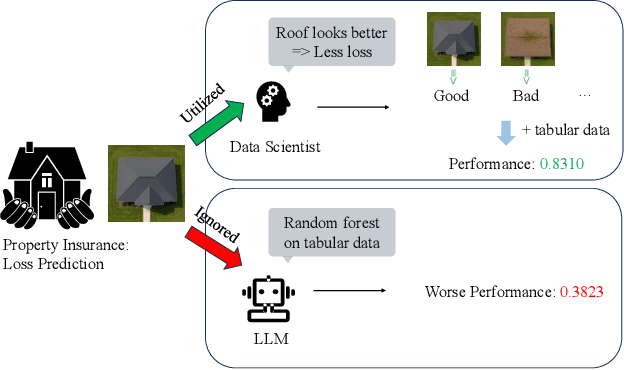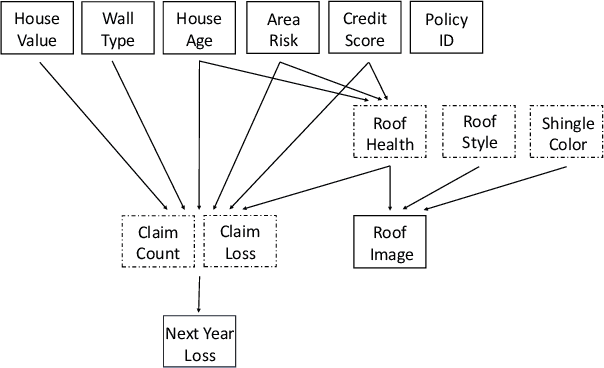Robert Specht
Can Agentic AI Match the Performance of Human Data Scientists?
Dec 24, 2025



Abstract:Data science plays a critical role in transforming complex data into actionable insights across numerous domains. Recent developments in large language models (LLMs) have significantly automated data science workflows, but a fundamental question persists: Can these agentic AI systems truly match the performance of human data scientists who routinely leverage domain-specific knowledge? We explore this question by designing a prediction task where a crucial latent variable is hidden in relevant image data instead of tabular features. As a result, agentic AI that generates generic codes for modeling tabular data cannot perform well, while human experts could identify the important hidden variable using domain knowledge. We demonstrate this idea with a synthetic dataset for property insurance. Our experiments show that agentic AI that relies on generic analytics workflow falls short of methods that use domain-specific insights. This highlights a key limitation of the current agentic AI for data science and underscores the need for future research to develop agentic AI systems that can better recognize and incorporate domain knowledge.
An Outlook on the Opportunities and Challenges of Multi-Agent AI Systems
May 23, 2025Abstract:Multi-agent AI systems (MAS) offer a promising framework for distributed intelligence, enabling collaborative reasoning, planning, and decision-making across autonomous agents. This paper provides a systematic outlook on the current opportunities and challenges of MAS, drawing insights from recent advances in large language models (LLMs), federated optimization, and human-AI interaction. We formalize key concepts including agent topology, coordination protocols, and shared objectives, and identify major risks such as dependency, misalignment, and vulnerabilities arising from training data overlap. Through a biologically inspired simulation and comprehensive theoretical framing, we highlight critical pathways for developing robust, scalable, and secure MAS in real-world settings.
 Add to Chrome
Add to Chrome Add to Firefox
Add to Firefox Add to Edge
Add to Edge